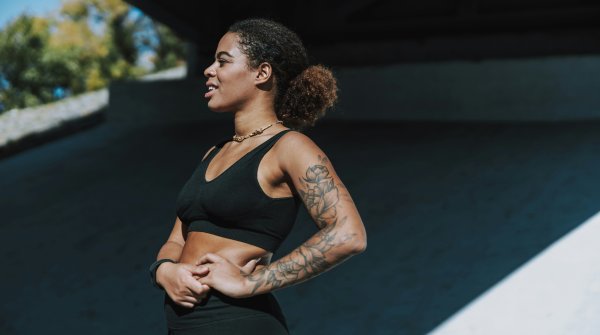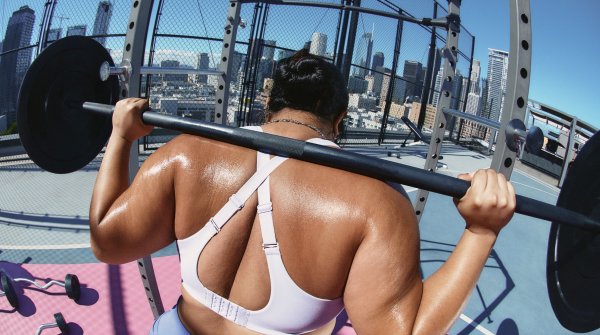- By women for women
- Eliminating pain points in clothing
- Inclusive design for the female body
- Modern approach: focus on feminine shapes
- Creativity and inspiration in product names
- Many facets of sustainability
- Ethical and transparent production
- Not possible without recycled materials
- Not an easy path for women's brands
- Visionary women with ethos
Astrid Wild is one of the few companies in the industry founded by women. After five years of successfully establishing itself among female outdoor consumers in Scandinavia, the Swedish brand is now launching its online store for Germany.
"Our design and product team is made up of 100 percent women, so everyone who works with us really understands what that means," says co-founder Maria Paulsson Rönnbäck. As a result, the Swedish company currently has the widest range of sizes for women in Europe.

By women for women is also the motto of the Norwegian company Kari Traa. "Every garment is designed with a precise understanding of the female body. We emphasize functional design that does not sacrifice style, and ensure that our clothing enhances both the performance and self-confidence of the wearer. By focusing on the specific needs of women, we have set a new standard for fair, comfortable and beautiful outdoor clothing," says General Manager Georgina Kirby.
LaMunt saw the light of day in 2020. Even though the women's mountain sports brand is part of the Oberalp Group, the core team is made up entirely of women. During the development phase, initiator Ruth Oberrauch not only incorporated her own wishes and ideas into the new collection. In discussions with 25 women with an affinity for the mountains, but also with different backgrounds - from mountain fanatics to occasional offenders - pain points were discussed, i.e. problems that female athletes have had with clothing up to now: for example, the lower back area, which tends to be more sensitive in women, where there is often a pull if a jacket is too short or trousers are cut too low. Or a jacket that rides up or is too tight on the hips or has an elasticated waistband.
"We know exactly how the female body differs from the male body," emphasizes Rönnbäck from Sweden. For this reason, Astrid Wild offers pants in 42 sizes and three different leg lengths. There are also many different solutions to ensure an optimal fit, such as an elastic waistband and stretchy materials. "Among other things, we always show our pants in at least two different sizes in our online store so that our customers can get a feel for how the product will look on them." According to Rönnbäck, she and her co-founder have responded to the existing outdoor industry, which has a very narrow image of an outdoor person. "However, when we entered the market, we didn't have as wide a range of sizes as we do today. This is a result of interaction with our customers and the community. We really do everything we can to make sure our products fit most women's bodies. And that's one thing that I think really sets us apart."

The women's brand Jeanne Baret - on the market since 2023 - also focuses on fit. According to Marketing Manager Alice Testi, the design approach focuses on the different shapes and sizes of women and counteracts the industry's tendency to design fashion primarily for a limited number of body types. The same applies to the Kari Traa brand: "The Kari Traa brand was born out of the ambition and desire to develop outdoor clothing that does optimal justice to the female figure and emphasizes it, rather than simply adapting men's models," explains General Manager Kirby. Through training and competing around the world, founder Kari Traa realized first-hand that traditional sports and outdoor clothing often overlooks the specific needs of women.
At Astrid Wild, every pair of trousers, every skirt, every shirt is given a woman's name: "We felt that it was a good opportunity to highlight really cool women that you might never have heard of," says the co-founder, explaining the idea of associating every product with a woman. Another advantage is that the community can be integrated into the naming process. "They are the ones who vote."
At Jeanne Baret, the garments are given the names of cities and islands: "It's more than just a naming convention; it's a way to connect our products with the spirit of discovery, culture and adventure that defines us." It is the legacy of the brand's namesake - the first woman to sail around the world. "By naming our products after the cities and islands she visited on her travels, we are paying tribute to this spirit of discovery."
The up-and-coming women's brands play on the theme of sustainability with many different facets - from ethical production to dual functionality and timelessness. "We wanted our garments to be versatile and able to be worn by women year after year. Muted colors offer this longevity and allow customers to invest in pieces that remain stylish through the seasons," says Jeanne Baret's marketing manager. Astrid Wild also made a conscious decision to use muted tones. Rönnbäck: "We strive to make clothes that our buyers can wear for years. It also makes it much easier to wear our products at work, for example. So we don't focus on any trendy colors."

According to Rönnbäck, locating the entire production in Europe was a very conscious decision. This applies to both the manufacture of the fabrics and the production of the pieces. "But it also means that production falls under EU legislation when it comes to working conditions, for example. And we can go there and visit the manufacturer. This is important for us, not only to have a good relationship, but also to ensure that the people who work there are doing well." Another advantage of producing in Europe is the ability to order smaller batches. "We have a more demand-driven product or production structure. Instead of only producing larger quantities twice a year, we basically produce all year round." As a result, there are no big sales at Astrid Wild because, according to Rönnbäck, there is no overproduction. "That's pretty unique in the fashion industry."
“We believe that those who don't waste are doing good,” reads the Girlfriend Collective website. Founded in 2016 in the US as a sustainable fashion brand for sportswear and casual wear, the company has quickly made a name for itself. The focus is on “ethical manufacturing” of products and recycled materials. “Old water bottles and fishing nets look better on you than they do cluttering up landfills and polluting the oceans”. To reduce fabric waste, Astrid Wild reuses leftover fabrics: for example, to make accessories like the “Matchy Minna” headband, produced from fabric left over from “Minna” jackets.
According to marketing manager Testi, the Italian brand Jeanne Baret aims to “gradually use fabrics that have less impact on the environment. Currently, we use recyclable organic polyester cotton, natural fibers and sustainable padding”.
"We have taken a very unique path, especially with our baselayers and the unique Norwegian style," emphasizes General Manager Kirby. It is a constant challenge "to maintain this special place, as other brands have expanded their range of clothing for women over the years". For co-founder Rönnbäck, the biggest challenge was finding potential customers for the new brand. As Astrid Wild only sells through its own online store, the first step was to raise awareness. "We spent a lot of time and energy creating great content for social media. We also worked a lot with really great influencers who wear our products."
Even though women's brands such as Astrid Wild and Kari Traa (still) share the closet with established brands such as Icebreaker, Patagonia and Lululemon, the ladies behind the women-only brands are certain that there are key differences: "Kari Traa is not just a brand with a women's collection - we have been a brand focused on women from the beginning. It was founded by one of Norway's pioneering Olympic skiers who wanted to bring women and girls together so they could confidently be themselves and live happier, healthier and stronger lives. This ethos permeates everything we do. Every product we design is developed with this belief in mind, and this clear focus allows us to optimize our offerings in a way that broader brands can't."
At Astrid Wild, the long-term goal is to become the most popular and iconic outdoor brand for women worldwide. "In other words, to offer everything our customers need for their outdoor experience - at least in terms of clothing. Then we'll see what happens with the equipment," says boss Rönnbäck. The Swedish women's brand's short-term goal is to become "an aspirational and inclusive outdoor clothing brand that is accessible to women in Europe".
- Awards
- Mountain sports
- Bike
- Fitness
- Health
- ISPO Munich
- Running
- Brands
- Sustainability
- Olympia
- OutDoor
- Promotion
- Sports Business
- Textrends
- Triathlon
- Water sports
- Winter sports
- eSports
- SportsTech
- OutDoor by ISPO
- Heroes
- Transformation
- Sport Fashion
- Urban Culture
- Challenges of a CEO
- Trade fairs
- Sports
- Find the Balance
- Product reviews
- Newsletter exclusive area
- Magazine










